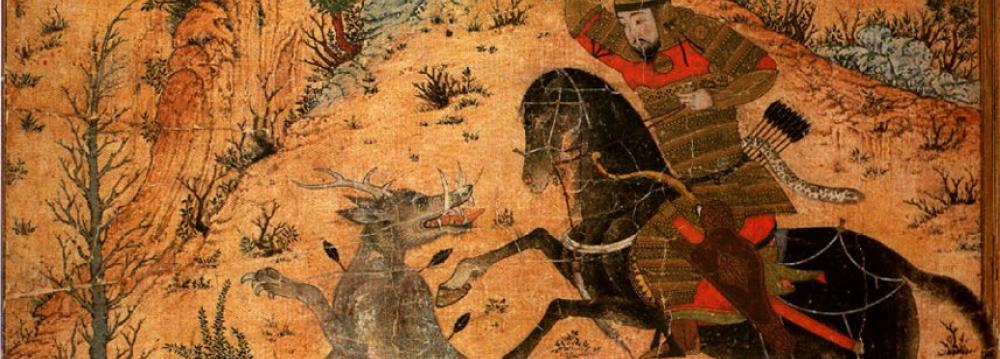A research work by linguist and philologist Mehri Baqeri titled 'Esfandiar-Nameh' (Book of Esfandiar), has been recently published by the Tehran-based Tahouri Publications.
In her book, Baqeri,70, has given an account of her findings from old documents about Esfandiar, the legendary Iranian hero, best known for his tragic combat with Rostam, the mightiest warrior of the Persian national epic, Shahnameh (Book of Kings) written by the world-known Abul-Qasem Ferdowsi (940-1020), according to the website of Book City Institute, bookcity.org.
Baqeri studied the Avesta, the oldest extant scriptures of Zoroastrianism, references by Greek historians, Pahlavi scripts from 2nd century BC to 17th century AD, pre-Islamic religious and literary books, works in early Islamic period, as well as research by scholars of oriental studies before writing her book.
All her findings about Esfandiar are compiled in separate entries in the work so that readers and researchers will be able to access the information in a more convenient way.
On August 16, the Book City Institute held a meeting to review the 'Book of Esfandiar'. Author and expert in eastern mythology Abolqasem Esmailpour, 61, and linguist, writer and researcher in Persian literature Mojtaba Monshizadeh, 64, attended the meeting.
Major Literary Effort
Esmailpour said the book is a major literary effort. Most of the existing works about Rostam and Esfandiar suffice to give a brief story of the two heroes.
"It should be noted that the age of generality is over. No more can we write about the entire Book of Kings in general. Today, it is necessary to write several books on just one character of the epic. Baqeri's book seeks to explore Esfandiar's character on the basis of Pahlavi texts of the Sassanid archives and later documents," he noted.
After 'Soog-e-Siavash' (Mourning for Siavash) by Iranian writer and scholar Shahrokh Meskoub (1924-2005), the 'Book of Esfandiar' is the second monograph written on one of the Shahnameh's characters. It would be a good practice for authors of various proficiencies to continue writing such monographs," Esmailpour said.
Monshizadeh said of the book that "it has considerable mythological discussions that should be separated from historical ones. The book also contains some discussions in sociology of literature, which deserves a separate study."
"It seems that that the final chapters could be either expanded or merged with other chapters. Terminology is pleasing, though I cannot agree with some terms," he said.
Baqeri, 70, explaining her stance said that "an undeniable part of today's (Iranian) culture is linked to its historical past." The author is also professor of Persian literature at Tabriz University and an expert in oriental mythology.


